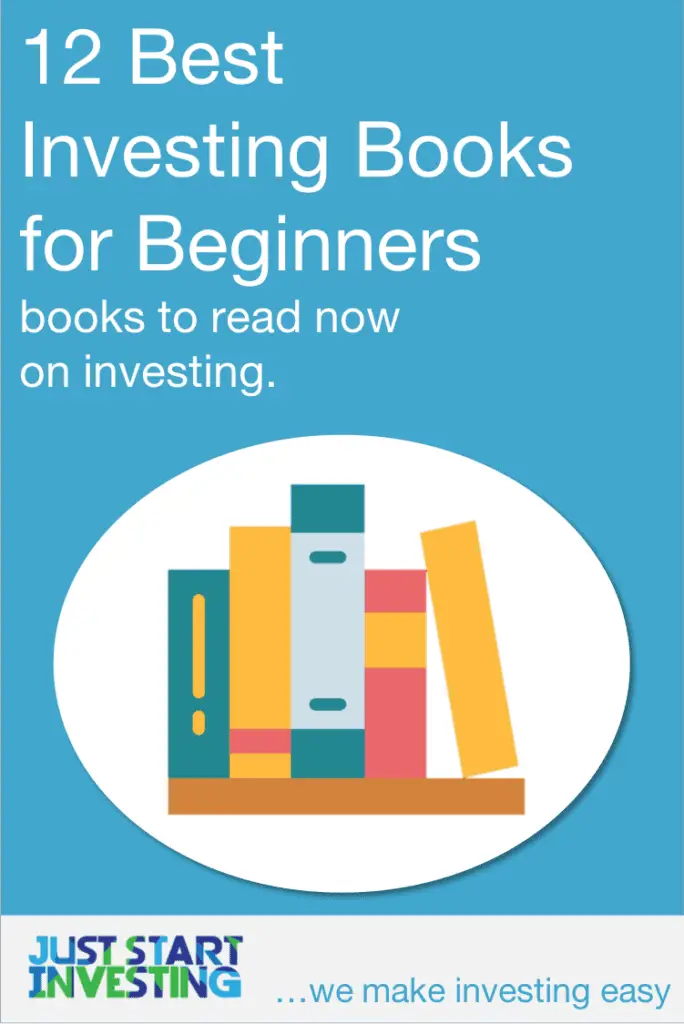Everyone knows the value of investing, but how do you get started with it? Indeed, to a person who has just recently stepped into the world of finance, it can all feel quite daunting.
Fortunately, plenty of great books have been written by experts to help interested individuals quickly learn the art of investment. If you want help narrowing down which ones to pick up first and read, below are my recommendations of the 12 best investing books for beginners.
12 Best Investing Books for Beginners
1. The Intelligent Investor by Benjamin Graham
Widely considered as the bible of investing, The Intelligent Investor: The Definitive Book on Value Investing is frequently hailed by experts as one of the best investment books ever written.
Written by economist and investor, Benjamin Graham, of whose disciples includes Warren Buffett and Irvin Kahn, the book introduces you to the basics of value investing. In the book, you are presented with such important concepts as behavioral economics, position trading, contrarian investing, and market fundamental analysis.
First published in 1949, the fact that the book’s content has managed to remain as relevant today as it was then, speaks volume to the timeless wisdom of the “father of value investing” and “greatest investment advisor of the twentieth century.”
The book’s revised edition is annotated by Jason Zweig, an acclaimed finance journalist, as well as Warren Buffet, an investing icon who no introduction.
2. Beating the Street by Peter Lynch
Between 1977 and 1990, as fund manager of Magellan Fund, Peter Lynch managed an incredible annual average return of +29.72%. The fund, which originally had just $18 million in managed assets, grew to a whopping $14 billion by the time Lynch retired from his position.
In his aptly named work, Beating the Street, Lynch explains his investment strategies step-by-step and offers advice on how to select the right individual stocks and mutual funds for your portfolio. Through his writing, Lynch stresses his belief that an individual has a better chance to exploit market opportunities than Wall Street (which would be hotly debated by index investors).
For any amateur investor thinking that they cannot make it big in today’s financial environment, reading this book can remind them of how wrong that thought really is!
It’s also a great read for long-term, index investors to get the contrarian view to their own strategy.
3. The Essays of Warren Buffett by Warren Buffett
Warren Buffett can easily be considered one of the most successful investors in modern history. The Essays of Warren Buffett: Lessons for Corporate America is a masterfully curated collection of Buffet’s shareholder letters (from Berkshire Hathaway) and other writings.
Through the book, the reader gets insight into Buffet’s take on various topics, including corporate governance, finance, and investing.
For beginners, it is a prime resource for learning the investment principles that helped make Warren Buffett the success he is today as well as get an inside glimpse into the workings of modern corporate finance.
4. Principles by Ray Dalio
Part autobiography, part how-to guide, in Principles: Life and Work, Ray Dalio, “the Steve Jobs of investing,” shares with his readers the lessons he learned from his highly successful investment career.
Starting his investment firm out of his two-bedroom apartment in NYC, Dalio, in 40 years’ time, managed to grow it into one of the most important private companies in the United States. It has made more money for clients than any other hedge fund in history.
Reading the book, you are introduced to the author’s set of unique principles that helped make his business such a huge success. The advice he offers in his work, of which there are hundreds, is truly invaluable. Dalio is offering you not only the means to better decision making and investing but also how to be more effective in leadership and management.
5. Rich Dad Poor Dad by Robert Kiyosaki
A cult classic, Rich Dad Poor Dad is one of the best books for young investors and those interested in real estate. It narrates the important life lessons the author learned growing up with two dads – the poor dad (his real father) and the rich dad (his best friend’s wealthy father).
The book highlights the importance of having a ‘rich’ mindset, stressing the value of acquiring financial literacy, making investments that generate cash flow, and ultimately, setting for yourself the goal of complete financial independence so you can get out of the “race of corporate America.”
Instead of working for money, have the money work for you.
6. The Little Book of Common Sense Investing by John C. Bogle
A close friend of Warren Buffet, the creator of the first index fund and founder of The Vanguard Group, John Bogle, in his bestselling piece, provides powerful insights and perspectives on how to get more out of your investment.
In a very easy to understand writing, the book details Bogle’s most pioneering techniques and strategies when it comes to investing, highlighting how even in a lose-lose situation, you can still turn the odds in your favor (or vice versa if you are not careful).
Endorsed by some of the best financial minds, reading this book will bring much needed common sense into your investing, allowing you to capture the most gains with the least risk of destroying your existing capital. This is done, of course, by creating a diversified investment portfolio of primarily index funds and exchange-traded funds (ETFs),
The Little Book of Common Sense Investing is one of our all-time favorite personal finance books at Just Start Investing, and one that we (and Bogleheads) recommend you read next.
7. Think and Grow Rich by Napoleon Hill
Written during the time of the Great Depression, this bestselling work from one of America’s most beloved motivational authors is as relevant today to beginner investors as it was at the right of publishing. The book explains, with detailed insight, the psychology of success and examines how personal beliefs and perspectives influence one’s success in life.
For the detracting reader who thinks the title is a bit corny, Hill’s work isn’t some feel-good pseudo-science mumbo jumbo but one based on more than 20 years of research and interviewing some of America’s wealthiest figures.
From his extensive study, he drew a list of 13 principles needed for success, which he succinctly details inside his book, Think and Grow Rich.
8. A Random Walk Down Wall Street by Burton G. Malkiel
The authoritative book by Burton Malkiel, A Random Walk Down Wall Street: The Time-tested Strategy for Successful Investing, is often recommended by many as the first book new investors should purchase before starting a portfolio.
By reading this book, you learn to talk the talk and walk the walk of investing. You get introduced to the various investment terms and what they mean (like, asset allocation), what investing strategies to use, how to make more accurate market predictions, what common mistakes to avoid, and more.
Malkiel’s book doesn’t offer any get rich quick schemes and gimmicks, but rather, details tried and tested methods that help you ensure your long term investment success.
9. Thinking, Fast and Slow by Daniel Kahneman
Written by renowned psychologist and Nobel Prize recipient in Economics, Daniel Kahneman, Thinking, Fast and Slow explores how one’s thought process impacts investment success.
Our thinking is explained as being composed of two systems – system one that is fast, initiative and emotion, and system two, which is more deliberate and rational. The book goes on to stress how reliance on system one can lead to suboptimal decision making and what techniques we can employ to guard ourselves against its shortcomings.
Written in a lively, conversation style, with his book, Kahn brilliantly manages to take what are extremely complex concepts and presents them to the reader in an easily comprehensible manner.
While the focus of the book is on investing, Kahn also explores how biased thinking impacts outcomes in our business and everyday lives.
10. The Only Investment Guide You’ll Ever Need by Andrew Tobias
Despite the bold statement, this book probably does live up to its name and is one of my favorites of the best investing books for beginners.
For over four decades, Tobias’s guide has been a favorite for those looking to upgrade their knowledge of finance and overall fiscal responsibility. Don’t worry about it being outdated’ as it has been revised to reflect the present condition of the financial market environment.
Using language that is concise, witty, and filled with humor, the author does an excellent job explaining otherwise boring financial concepts and information to the layman without losing their interest. If you are starting from absolute zero, this is a great book to pick to quickly learn the basics of finance and investment.
It’s not exactly meant for those who already have graduated beyond the fundamentals, but there are enough gems and clever tips in the book to still make it a worthwhile read.
11. The Behavioral Investor by Daniel Crosby
“Wealth, truly considered, has at least as much to do with psychological as financial wellbeing”, this what Daniel Crosby’s bestselling work stresses on the reader.
The Behavioral Investor is another psychological work that delves into how our emotions can lead to us make terrible investments and sets forth highly practical solutions to building wealth.
In a sweeping tour of the human psyche, examining the sociological, neurological, and psychological factors that shape our decision making, Crosby’s work is to date one of the most definitive works on behavioral finance.
The book is divided into three parts – part one introduces the influence of externalities on our choices. Part two discusses the four main psychological factors that impact investor behavior. Lastly, part 3 provides a framework on how to overcome those shortcomings and improve both your returns and overall behavior.
12. The Coffeehouse Investor by Bill Schultheis
Last on the list of the best investing books for beginners is a grossly underrated book, The Coffeehouse Investor by Bill Schultheis. It’s a great read for those who feel intimidated by the stock market.
The book highlights the wisdom of simplifying your investment decisions. Not only does this actually translate to you getting better stock market returns, but it also means that you now have more time for your other passions.
It’s a short read of only 224 pages, written in a quite frank yet engaging style. For the novice investor dreaming of making it big overnight, this book serves as an excellent reminder of why that’s impractical and provides simple yet effective advice on what you should do to improve your returns.

Summary: The Best Investing Books for Beginners
Of all investment types, books are probably ones that pay off with the highest returns.
Market returns may vary, new sectors may emerge and old ones may decline, valuable commodities today may become worthless tomorrow, but knowledge gained from books is something that provides you with consistent returns for the rest of your life.
Which other books do you think we should add to our list of the best investing books for beginners? Tell us in the comments below.

Christopher Liew from Wealth Awesome
Christopher Liew is the creator of Wealthawesome.com, where he shares money tips and guides for his readers. He’s a CFA Charterholder who has been featured on Yahoo Finance, MSN Money, and The Motley Fool. Read about how he quit his 6-figure job to travel the world.

One Up On Wall Street by Peter Lynch is also a good one. The principles are easy to understand and they work, so it’s a must read for every new investor.